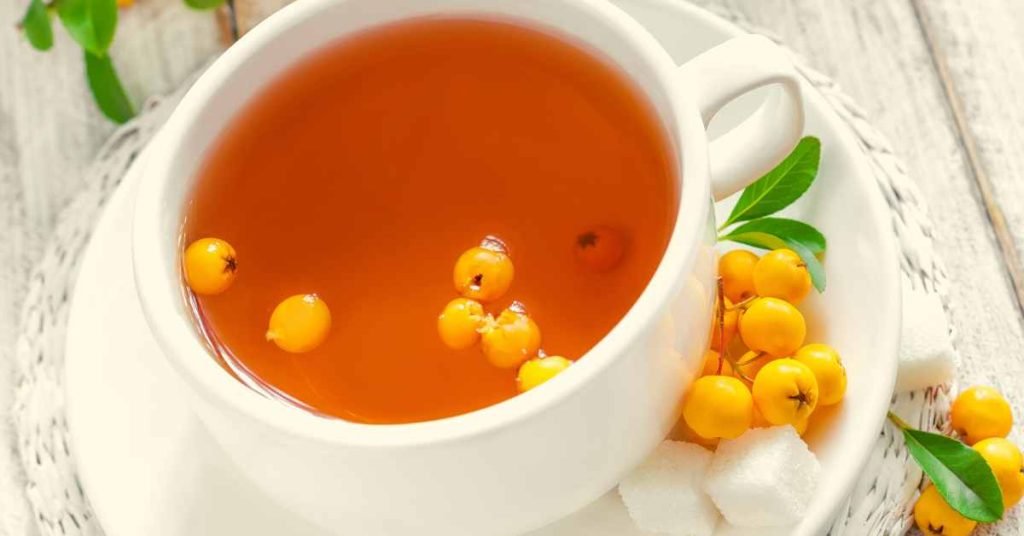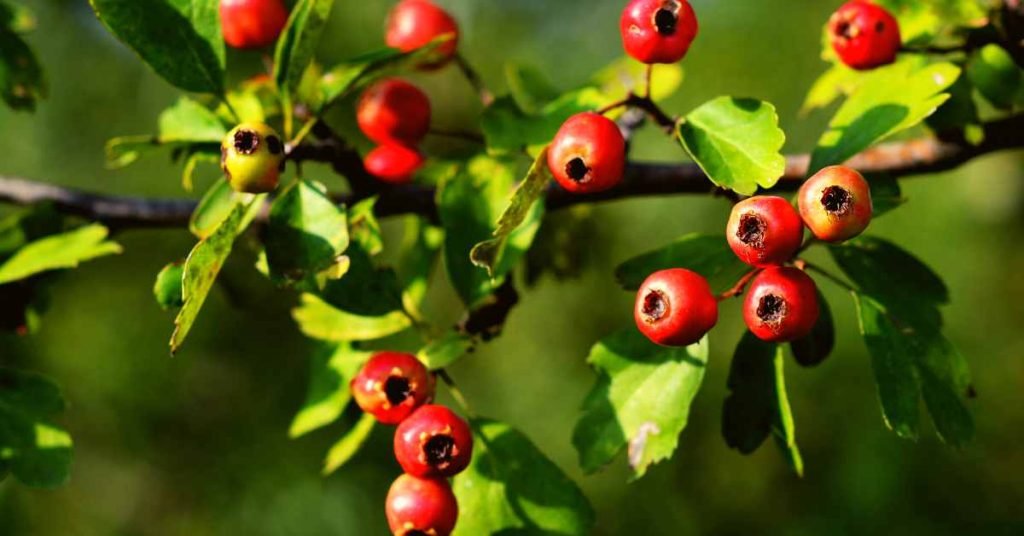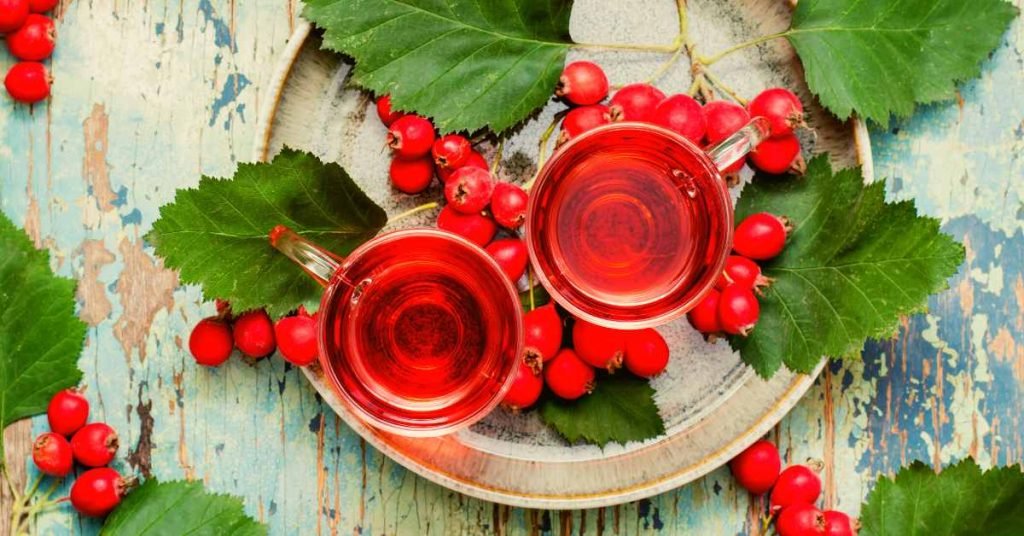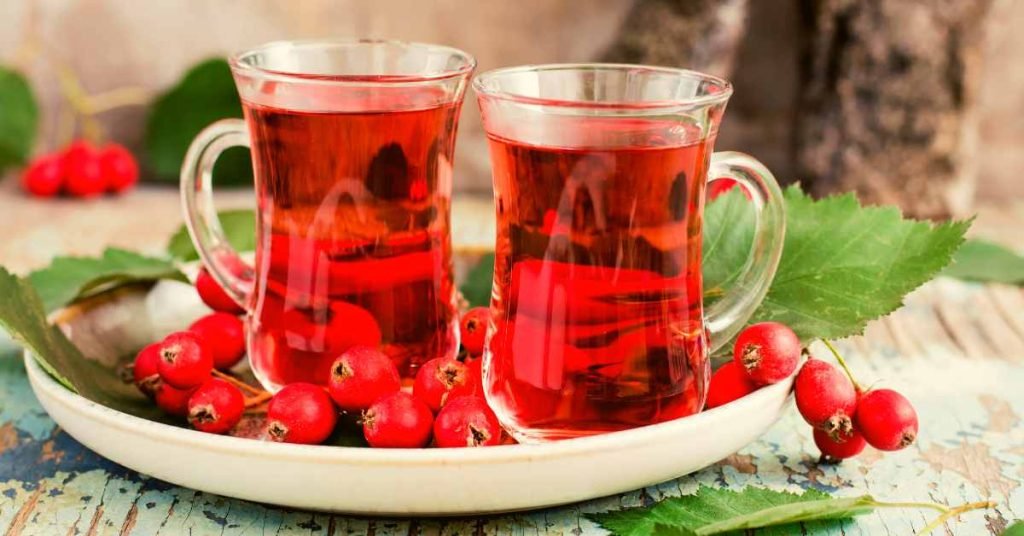Nature has gifted us with a treasure trove of herbs that harbor incredible benefits for human wellness, and among them, hawthorn tea stands out as a tonic for both the heart and overall health.
Derived from the berries, leaves, and flowers of the hawthorn plant (Crataegus), this tea has been embraced for centuries in traditional medicine for its holistic healing properties.
In this exploration, we delve into the myriad benefits and properties of hawthorn tea, shedding light on how this ancient remedy contributes to human well-being.
Heart Health: The Core Benefit

Cardiovascular Support:
The crown jewel of hawthorn tea‘s benefits lies in its profound impact on cardiovascular health. Rich in flavonoids, antioxidants, and oligomeric proanthocyanidins, hawthorn tea has demonstrated the ability to dilate blood vessels, improve blood flow, and enhance the strength of heart contractions. Regular consumption is associated with reduced risk factors for heart disease, making it a valuable ally in maintaining a healthy heart.
Blood Pressure Regulation:
Studies suggest that hawthorn tea may play a role in regulating blood pressure. Its vasodilatory effects help relax blood vessels, potentially contributing to lower blood pressure levels. For individuals grappling with hypertension, integrating hawthorn tea into their routine may offer a natural and complementary approach to managing this condition.
Cholesterol Management:
The compounds found in hawthorn tea have been linked to improvements in lipid profiles. Regular consumption may aid in lowering levels of LDL cholesterol (the “bad” cholesterol) while supporting the maintenance of healthy HDL cholesterol levels, further safeguarding against cardiovascular issues.
Beyond the Heart: Additional Benefits and Properties

Antioxidant-Rich:
Hawthorn tea boasts a rich antioxidant profile, providing defense against oxidative stress. Antioxidants combat free radicals in the body, contributing to overall cellular health and potentially reducing the risk of chronic diseases.
Digestive Aid:
Traditionally, hawthorn has been used to support digestion. The tea’s mild diuretic properties may help alleviate water retention, while its ability to enhance blood flow can positively impact gastrointestinal function.
Stress and Anxiety Relief:
Some compounds in hawthorn tea have been suggested to have calming effects on the nervous system, potentially assisting in stress and anxiety reduction. A relaxed mind is integral to overall well-being, and hawthorn tea offers a soothing sip for both body and mind.
Immune System Boost:
The antioxidants and bioactive compounds in hawthorn tea contribute to its immune-boosting properties. By fortifying the body against infections and promoting overall immune resilience, hawthorn tea becomes a flavorful shield against common illnesses.
Preparation and Enjoyment of Hawthorn Tea

Now that we’ve explored the extensive benefits and properties of hawthorn tea, let’s guide you through the simple process of preparing this healthful elixir.
Ingredients:
- 1-2 teaspoons dried hawthorn berries, leaves, or flowers (or a hawthorn tea bag)
- 1 cup boiling water
- Optional: honey or lemon for added flavor
Instructions:
Choose Quality Ingredients:
Opt for dried hawthorn berries, leaves, or flowers from a reputable source, or use a commercially available hawthorn tea bag.
Boil Water:
Bring one cup of water to a boil. Use filtered or spring water for the best flavor.
Add Hawthorn:

Place the dried hawthorn berries, leaves, or flowers in a teapot or tea infuser.
Pour Water Over Hawthorn:
Pour the boiling water over the hawthorn in the teapot or infuser.
Steep:
Allow the hawthorn to steep for approximately 5 to 10 minutes. Adjust the steeping time based on personal preference, noting that a longer steeping time results in a stronger flavor.
Strain (If Necessary):
If you use loose hawthorn berries, leaves, or flowers, strain the tea to remove them before drinking. If using a tea bag, you can skip this step.
Add Optional Ingredients:
Enhance the flavor by adding honey or a splash of lemon if desired.
Enjoy:
Sip the warm hawthorn tea slowly, relishing its delicate taste and allowing its nurturing properties to envelop you.
Final Word

Incorporating hawthorn tea into your wellness routine can be a delicious and rewarding step towards a healthier, more balanced life.
From nurturing the heart to supporting digestive health and offering a calming respite from stress, hawthorn tea encapsulates the essence of natural, holistic well-being.
Embrace this ancient elixir as a daily ritual, and let the benefits of hawthorn tea unfold as you embark on a journey toward optimal health and vitality.
MEDICAL DISCLAIMER
Itsnevernotteatime.com cannot and does not contain medical/health advice. The medical/health information is provided for general and educational purposes only and is not a substitute for professional advice.




